Mimosa pudica, commonly known as the “sensitive plant” or “touch-me-not,” is a member of the pea family that has captivated us with its unique response to touch. This plant isn’t just an eye-catching novelty; it’s been celebrated in traditional medicine for centuries for its potent healing properties.
Native to Central and South America but now cultivated globally, Mimosa pudica is a true herbal multitasker, offering antimicrobial, anti-inflammatory, digestive, and even mental health benefits.
But like any remedy, it has its pros and cons that you should consider if you’re thinking of incorporating this plant into your wellness routine.
Pros of Mimosa Pudica
1. Antimicrobial and Antiparasitic Properties
Mimosa pudica’s leaves contain alkaloids, flavonoids, and tannins – compounds shown in research to have antibacterial, antifungal, and antiviral effects. They are valuable for cleansing wounds, reducing skin infections, and even combatting intestinal parasites.
In a study published in the Journal of Ethnopharmacology, Mimosa pudica extracts demonstrated effectiveness against E. coli and S. aureus, bacteria commonly responsible for infections.

2. Anti-Inflammatory and Pain Relief Benefits
The plant contains phenolic compounds that can reduce inflammation and provide relief for joint pain, particularly arthritis.
Traditional Ayurvedic medicine has long used Mimosa pudica paste to ease muscle and joint pain. Today, many people find relief by applying the leaf paste topically or using it as a supplement.
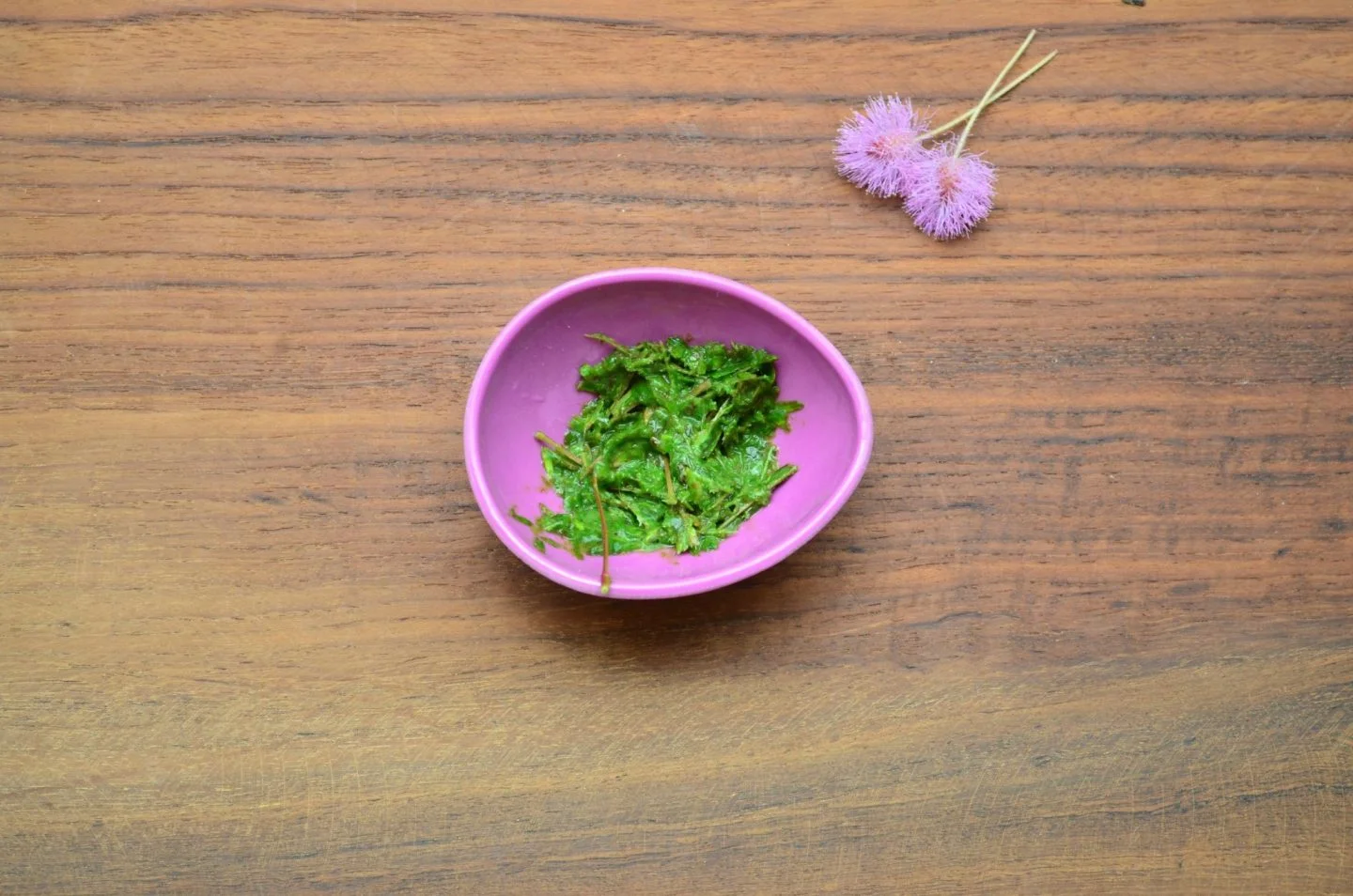
3. Digestive Support and Gut Health
Mimosa pudica is an excellent source of soluble fiber, especially in its seeds. The fiber works to clean the digestive tract, supporting regular bowel movements and promoting a healthy gut environment.
Additionally, its natural cleansing effect makes Mimosa pudica a popular choice in natural treatments for digestive issues like irritable bowel syndrome (IBS) and parasitic infections.
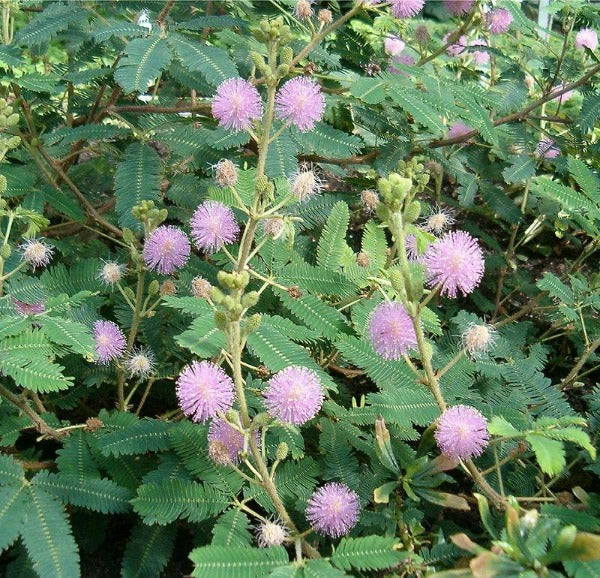
4. Wound Healing and Skin Health
The leaves contain tannins and alkaloids that help reduce bleeding and encourage clotting, making it useful for minor cuts and abrasions.
These compounds create a protective barrier, speeding up healing and reducing the risk of infection.
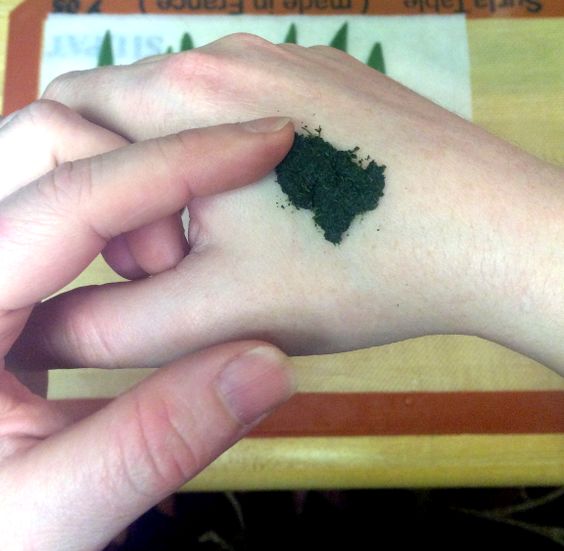
5. Supports Liver Health and Detoxification
The antioxidants in this plant reduce oxidative stress, helping the liver function more effectively in detoxifying the body.
In studies, it has shown potential to lower liver enzyme levels, suggesting its role in reducing liver inflammation.
6. Mental Health Benefits and Calming Effects
Mimosa pudica has natural calming properties that can help ease symptoms of stress, anxiety, and mild depression.
Its compounds act on the nervous system to reduce stress responses, making it a useful plant for relaxation and improving sleep quality.
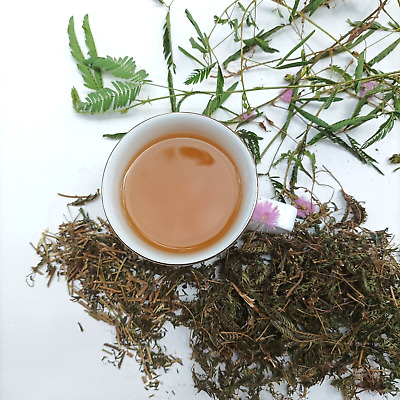
Cons of Mimosa Pudica
1. Potential Digestive Discomfort
Mimosa pudica’s high fiber content, particularly in the seeds, can sometimes cause digestive discomfort. If you’re new to fiber-rich supplements, starting with a large dose of Mimosa pudica might lead to bloating, gas, or mild cramping.
These effects are usually temporary, but it’s advisable to start with a small amount and gradually increase to allow your digestive system to adjust.

2. Risk of Overuse and Potential Toxicity
As with many natural remedies, overuse of Mimosa pudica can strain the liver and digestive system.
Excessive consumption, particularly in concentrated supplement forms, may lead to digestive disturbances or even liver issues in some cases.
3. Limited Research on Long-Term Effects
Despite promising findings, the research on Mimosa pudica’s long-term effects is still limited.
Those planning to use this plant continuously for extended periods should be cautious.
4. Allergic Reactions and Skin Sensitivity
Topical application of Mimosa pudica may cause mild skin reactions if you have sensitive skin or are prone to allergies.
If you’re using Mimosa pudica on your skin, patch-testing on a small area is recommended to ensure it’s well-tolerated before applying more widely.
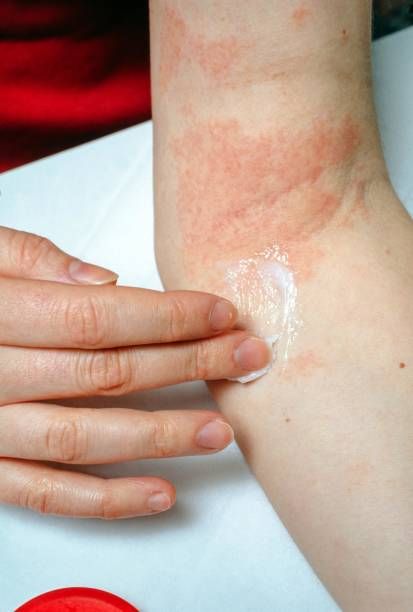
5. Potential Blood Sugar Effects
Mimosa pudica has been shown to have mild effects on blood sugar levels, helping slow absorption, which can benefit people managing diabetes.
However, these effects can interfere with blood sugar control for those with diabetes or hypoglycemia. If you take blood sugar-lowering medication, monitor levels closely and consult your healthcare provider before adding Mimosa pudica to your routine.

6. Interference with Certain Medications
Mimosa pudica may interact with certain medications, particularly those related to liver function, blood sugar management, and blood pressure.
If you’re on medication, especially for chronic conditions, consult your healthcare provider before using Mimosa pudica.
